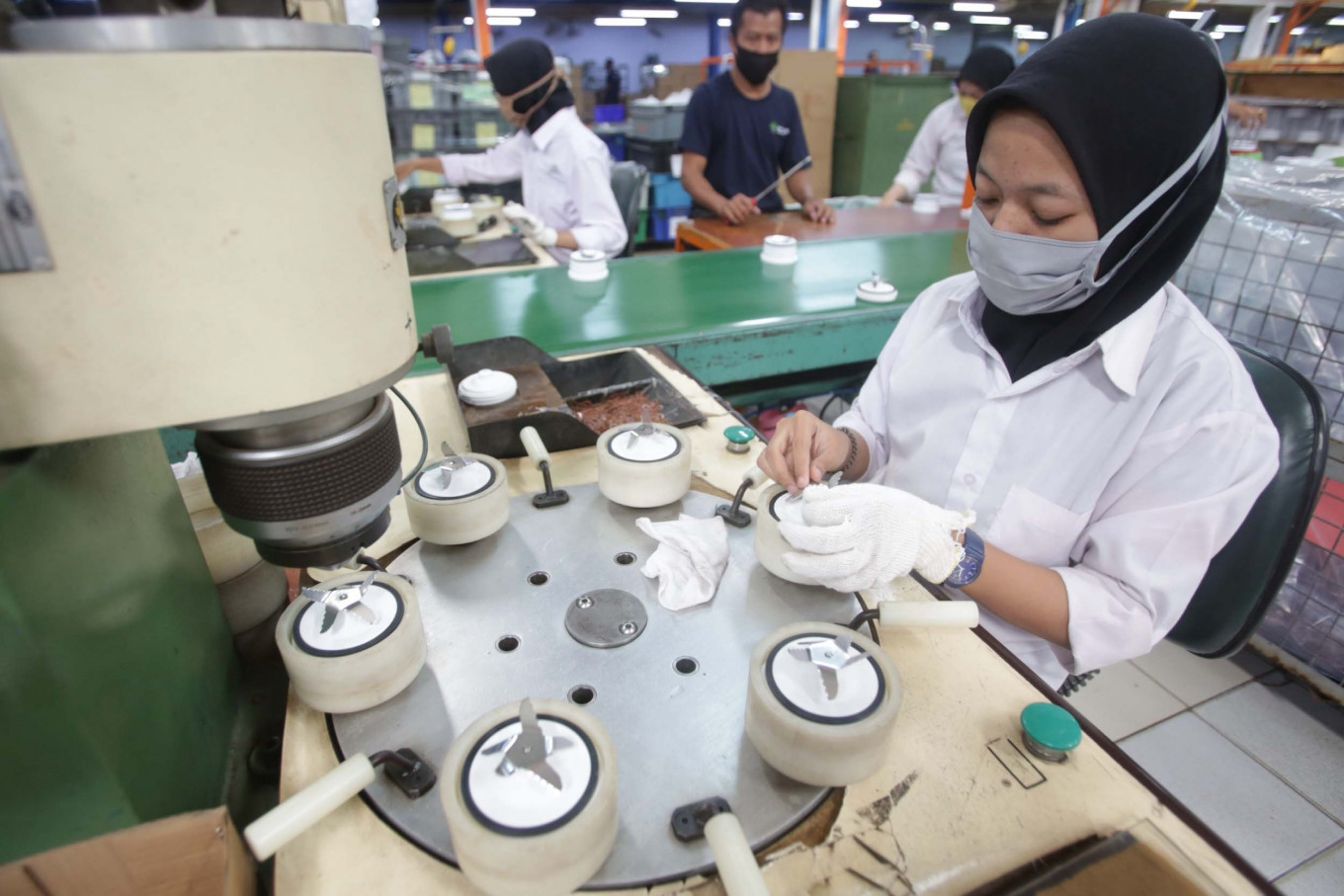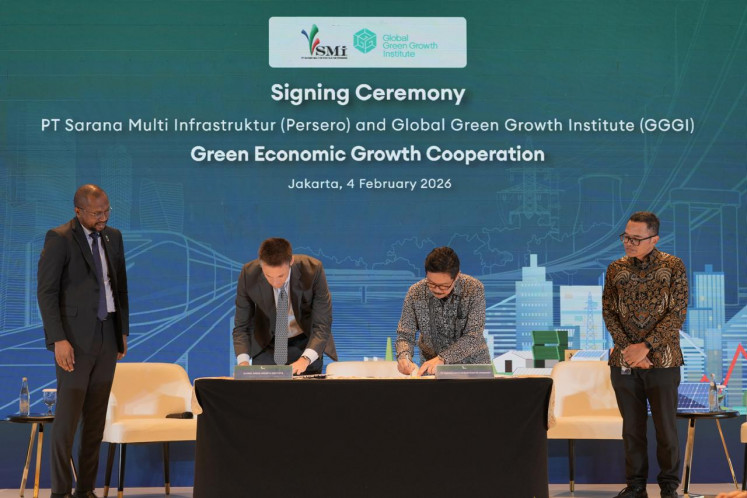Popular Reads
Top Results
Can't find what you're looking for?
View all search resultsPopular Reads
Top Results
Can't find what you're looking for?
View all search resultsTax Stimulus Boosts Indonesia’s Economic Recovery
Change text size
Gift Premium Articles
to Anyone
I
n 2024, Indonesia experienced a slowdown in inflation, reaching a record low of 1.57 percent. While this indicates price stability, it also signals the need for greater stimulus to sustain economic growth.
One of the most affected sectors is labor-intensive industries, which require substantial support to maintain competitiveness and ensure business continuity. To address this, the government introduced fiscal incentives aimed at assisting workers and business owners alike.
At the beginning of this year, the government enacted two strategic fiscal policies: Finance Minister Regulation (PMK) No. 10/2025 and PMK No. 13/2025. These policies are designed to bolster household consumption, strengthen industries and enhance purchasing power, particularly in the property sector.
PMK 10/2025 focuses on government-borne income tax (PPh 21 DTP) for workers in labor-intensive industries, a measure intended to preserve consumer purchasing power while accelerating national economic recovery. Throughout 2024, these industries faced significant challenges, including a surge in layoffs.
Data from the Manpower Ministry revealed that more than 77,000 workers were laid off that year, with Jakarta recording the highest figure at 17,085, marking a 608 percent increase from the previous year. This alarming trend underscores the necessity of government intervention to stabilize the industry and protect workers’ livelihoods.
The PPh 21 DTP incentive provided under PMK 10/2025 aims to alleviate financial burdens on companies while enhancing the competitiveness of domestic products.
Additionally, by maintaining consumer purchasing power, the policy seeks to sustain overall economic activity. Rather than serving as a mere short-term stimulus, the measure is positioned as a long-term strategy to ensure sustainable industrial growth.
In addition to supporting labor-intensive industries, the government is also driving growth in the property sector through PMK 13/2025. This regulation grants a government-borne value-added tax (PPN DTP) for the purchase of landed houses and apartment units, aimed at increasing homeownership access while incentivizing developers to offer more affordable housing.
Before the issuance of PMK 13/2025, the government had implemented similar policies, including PMK 7/2024 and PMK 61/2024, to counter the property market slowdown in late 2023 and early 2024.
Following the implementation of PMK 7/2024, the sector showed signs of recovery, with property investments reaching Rp 29.4 trillion (US$1.78 billion) in the first half of 2024, a 6 percent increase compared with the same period the previous year. This growth reflects investor confidence in the sector.
However, recognizing the property sector’s wide-ranging impact on the national economy, affecting construction, raw materials, labor and banking, the government introduced PMK 13/2025 to further strengthen the recovery.
A survey conducted by Bank Indonesia found that residential property sales in the primary market declined in Q4 2024, particularly for small and mid-sized homes. This indicates weakened consumer purchasing power and reduced demand for new housing units. To address this, PMK 61/2024 was introduced to stimulate the market.
As a follow-up, PMK 13/2025 was enacted to extend and refine the existing incentives, ensuring continued support for homebuyers while revitalizing the property sector. Increased purchasing power in real estate is expected to trigger a positive ripple effect across banking, manufacturing and service industries, ultimately accelerating broader economic recovery.
While the incentives provided under PMK 10/2025 and PMK 13/2025 hold significant potential for economic revival, their implementation requires careful oversight. Past experiences indicate that tax incentives often face compliance challenges, with some businesses failing to take full advantage of them due to a lack of awareness about reporting mechanisms.
Enhanced public outreach and education are essential to ensure that industry players, property developers and consumers fully understand and benefit from these incentives.
Furthermore, periodic evaluations of these incentives’ impacts are necessary, particularly regarding their effectiveness in curbing layoffs and boosting property sales. Should the policies fail to deliver the expected growth in the initial months, the government may need to consider extending the incentives or introducing additional support measures for the most affected sectors.
Another crucial aspect is ensuring that these incentives benefit a broad spectrum of society rather than being concentrated among select groups. In the property sector, for instance, additional policies should be considered to expand housing access for lower-income populations, preventing the incentives from disproportionately favoring middle- and upper-class buyers.
To maximize the effectiveness of PMK 10/2025 and PMK 13/2025, the government must intensify awareness campaigns and provide clear guidelines on tax incentive utilization. Moreover, continuous monitoring and assessment should be conducted to gauge policy effectiveness, ensuring that intended economic targets are met.
If results fall short in the initial months, timely adjustments such as extended incentives or supplementary measures should be implemented. Transparency and accountability must also be upheld in policy execution to guarantee that incentives are utilized as intended.
With these measures in place, the tax incentives are expected to play a vital role in sustaining Indonesia’s economic momentum, generating employment opportunities and improving overall societal welfare. Strategic policymaking, coupled with effective implementation, has the potential to drive steady economic growth.
Through collaboration between the government, businesses and the public, 2025 could mark the beginning of a stronger and more resilient economic recovery for Indonesia.
Source: The Directorate General of Taxation (DGT)











